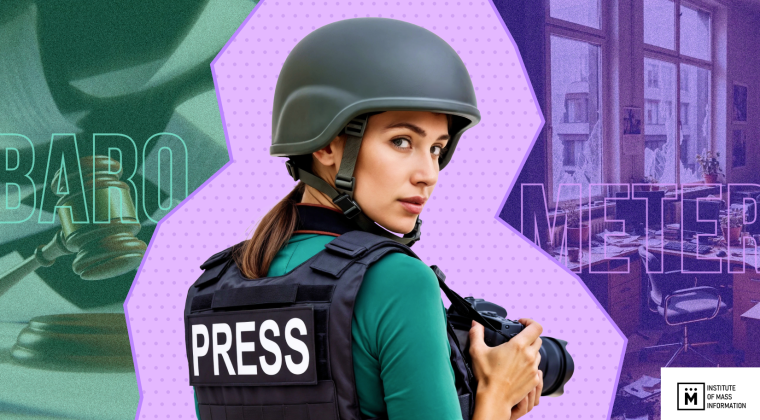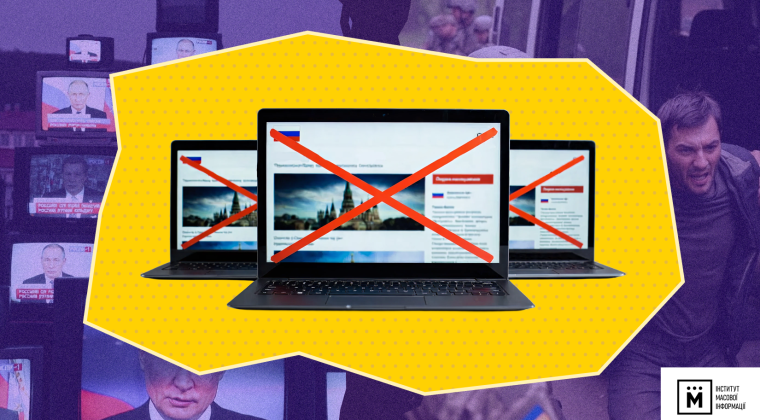NGO “Institute of Mass Media” has to recommend to the drafters to bring the text to the public domain and to hold wide consultations with the media experts.
Lately, Detektor Media made public the text of one of the most important bills related to the media domain: the media bill. Since the bill has been worked out behind closed doors, IMI joined the Detector Media’s initiative to publicly discuss it.
One of the upsides of that document is that Ukrainian media legislation is made codified with it and some obsolete laws adopted in the 1990s are cancelled. Besides that, the adoption of a new audiovisual code is one of Ukraine’s commitments to the Council of Europe.
Among other positive points is that for the first time that web-based editions get certain regulation, quotas for the national product and for the Ukrainian language (though four years delayed) are kept, and it presumes some measures of precaution for the period of Russian aggression. Another positive is that the bill does not provide any licensing or superfluous restrictions for the procedure of online media registration. Websites cannot be blocked without any court order, which is also important point.
The status of the journalist has been preciseed, in particular the status of TV presenters (announcers) has been separated from this one of the journalist. This is to eventually stop any political manipulation, when politicians, incumbent MPs, and even leaders of political structures claim being journalists themselves. The procedure for appointing members of the National Council of television and radio broadcasting by the head of state become more transparent. In particular, the Tender Commission is being established, since an independent and competent regulator body is an essential condition for development of the Ukrainian mass media market.
However, the bill has several negative points as well. Namely, we cannot say that this bill fully meets the requirements of European legislation as to regulation of audiovisual media. For example, regarding the functions of the national regulator and co-regulatory procedures (this is unclear how does it formed and where is the line between the power of the state regulator and the co-regulatory body).
The terminology given in the bill fail to clearly define the nature of the phenomena described by the relevant term. For example, “a news edition is news program that is regularly aired according to a program schedule.” But such a broad definition covers, in particular, show programs, which are also regularly aired by television channels. Incorrectly defined terms make it impossible to respond properly to violations.
The scope of the law and the subjects which are not subject of that law are not clearly defined. In particular, the online mass media have not been properly separated, this would allow to qualify such as the websites of individuals’ ads such as OLX, Auto.ria, Prom.ua, etc in this category.
The wording of norms in the document is not systematic and unstructured. Due to non-systematic approach, lack of general and specified parts, the same rules are reiterated for many times in different articles, and they may have different meanings depending on the article. Many terms in the text of the bill do not meet the definitions given at the beginning of the bill.
Control of compliance with the law from liability for violation of the legislation is not separated. In particular, inspections held by the National Council are cited as one of the types of responsibility.
The control procedures of the National Council have been established based on the current legislation on television and radio, and thus formalities and procedures relating to television are mechanically transferred to the print media and online media, which is excessive and complicates the work of both the regulator and the relevant media.
The bill generally does not speak of obligations for the media and journalists, although current media laws provide some general obligations to respect objectivity, impartiality, to verify information and other. At present, it seems like if, by means of co-regulatory mechanism, one tries to ensure the news to be balanced, facts to be separated from comments and to respect other journalistic standards in news content isn’t possible. That is, the media holdings belonging to oligarchs will go on to manipulate the public opinion, to promote one’s owners and to “kill” their opponents.
The bill does not noticeably qualitative changes regarding antitrust regulation. In particular, there is a mention of 35% of the market without properly defining what the “market” is. As a result, the prospect of proving the existence of monopolies seems doubtful. In addition, such norms are mechanically copied for the online editions, which clearly needs another way of evaluating monopolies.
Regarding the regulation of printed press mass media: the document requires to submit information on circulation of its printed edition (which is different for each issue) during registering the outlet, but does not specify the thematic focus of the publication and other relevant information. The draft law, unfortunately, does not take into account the specifics of the activities of print media, in particular with regard to the controlling functions of the National Council and in the case of violations by printed press.
The mechanism of co-regulation is imperfectly spelled out. First, it is unclear how such a co-regulatory body is formed and the way to prevent forming of alternative bodies. It seems that each market player is enable to form its own co-regulatory body. It fails to be clear how co-regulation occurs, the powers of the co-regulatory body and the procedure for its co-operation with the state regulator body. It is unclear who makes the final decision, whether the National Council has the right to disagree with the regulatory body. The National Council should nevertheless be able to reasonably disagree with the position of the co-regulatory body and to apply sanctions, as well as to terminate the co-regulatory mechanism, if it is ineffective or has become an instrument of abuse. It is unclear whose decision should be appealed against at the court in case of disagreement.
Proposed regulation of propaganda and hate speech raises questions as well. The bill reiterates the same rule for different subjetcs of regulation, saying the propaganda is a gross violation, as well as the “incitement to hatred and animosity”, in particular towards individuals. At the same time, there is no definition of what is meant by the word “propaganda” and what are the criteria of “hate speech”. Since the concept of “propaganda” as a gross violation does not have any clear definition, so, that is to say, this concept covers everything from sport propaganda to election campaign.
As a result, we can say that the media bill has some pros and cons, both positive and negative points. In order to improve the text of the draft law, we strongly recommend to bring the text for public discussion and to hold extensive consultation with the media expert community prior to its registration with the Verkhovna Rada of Ukraine and adopting it as the law.
By Roman Golovenko, Ali Safarov, Oksana Romanyuk



